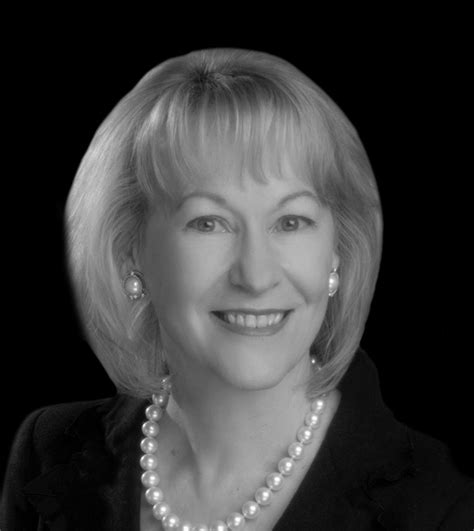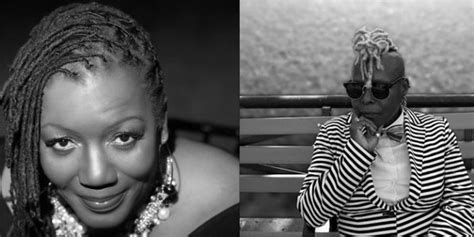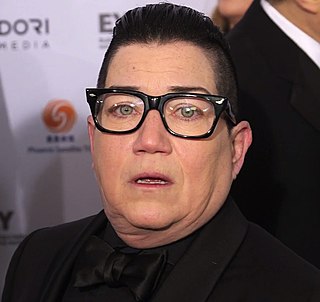Ein Zitat von Patricia K. Kuhl
Babys auf der ganzen Welt sind das, was ich gerne als „Weltbürger“ bezeichne. Sie können alle Laute aller Sprachen unterscheiden, unabhängig davon, welches Land wir testen und welche Sprache wir verwenden.
Verwandte Zitate
Sprachen wie Englisch, Spanisch und Chinesisch sind gesunde Sprachen. Sie existieren in gesprochener, geschriebener und unterzeichneter Form und werden von Hunderten Millionen Menschen auf der ganzen Welt verwendet. Aber die meisten der rund 6.000 Sprachen der Welt sind nicht in einem so gesunden Zustand.
Mein besonderes Interesse in den letzten Jahren bestand darin, wirklich gründlich über die große Abhängigkeitsdiskrepanz nachzudenken, die wir zwischen Programmiersprachen, insbesondere C#, und der Datenbankwelt wie SQL oder, was das betrifft, der XML-Welt wie XQuery und XQuery haben welche Sprachen es gibt.
Die biblischen Autoren schrieben über die Souveränität Gottes über seine Welt und über die Erfahrungen des Menschen in dieser Welt, wobei sie die zu ihrer Zeit gängigen Redeweisen über die natürliche Ordnung und die menschliche Erfahrung verwendeten, und zwar in einer Sprache, die ihnen und ihren Zeitgenossen gemeinsam war . Das bedeutet nicht mehr, als dass sie geschrieben haben, um verstanden zu werden. Ihr Bild der Welt und der darin enthaltenen Dinge wird nicht als normativ für die spätere Wissenschaft angesehen, und vielmehr wird ihre Verwendung von Hebräisch und Griechisch als perfektes Modell für die Komposition in diesen Sprachen angesehen.
Ich versuche, jedes Stück in der Sprache des Stücks zu schreiben, damit ich nicht von Stück zu Stück die gleiche Sprache verwende. Ich verwende möglicherweise zehn oder zwanzig Sprachen. Diese Vielfalt der Sprache und der Verwendung von Wörtern ist afrikanischer Tradition. Und schwarze Schriftsteller haben das definitiv aufgegriffen und verinnerlicht. Es ist, als würde man in Zungen reden. Für manche mag es wie Kauderwelsch klingen, aber Sie wissen, dass es eine Art Zunge ist. Schwarze Menschen haben das. Wir haben als Rasse die Fähigkeit, in Zungen zu sprechen, in Zungen zu träumen und in Zungen zu lieben.
Ich sage immer, dass meine künstlerische Aussage darin besteht, keine Angst davor zu haben, über das Durcheinander zu sprechen – die unangenehmen Gefühle und Ereignisse in meinem Leben. Ich versuche auch zu vermitteln, wie es sich anfühlt, wie es sich anhört, wie es riecht und wie es aussieht, wenn ich mich in meiner Haut als schwarze Amerikanerin Mitte Zwanzig durch die Welt bewege. Die Sprache aus Liedern und Fernsehsendungen fühlt sich integral an, weil sie dazu beiträgt, die Umgebung zu schaffen und das Gesamtbild zu beschreiben.
Ein amerikanischer Kunde kann überall auf der Welt auf Englisch buchen, aber auch jemand aus Japan oder China kann überall in seiner eigenen Sprache buchen. Wir übersetzen alle unsere Inhalte in diese Sprachen, und das ist ziemlich einzigartig. Wir betreuen unsere Direktkunden – die Gastwirte – ebenfalls in ihrer eigenen Sprache.
Ich arbeite auf Hebräisch. Hebräisch ist stark von anderen Sprachen inspiriert. Nicht jetzt, in den letzten dreitausend Jahren wurde das Hebräische von alten semitischen Sprachen durchdrungen und befruchtet – vom Aramäischen, vom Griechischen, vom Lateinischen, vom Arabischen, vom Jiddischen, vom Latino, vom Deutschen, vom Russischen, vom Englischen, ich könnte weiter und weiter machen. Es ist dem Englischen sehr ähnlich. Die englische Sprache übernahm viele, viele Befruchtungen, viele, viele Gene aus anderen Sprachen, aus Fremdsprachen – Latein, Französisch, nordische Sprachen, Deutsch, skandinavische Sprachen. Jede Sprache hat Einflüsse und ist ein Einfluss.
Unsere Gedanken, unsere Sprache sind immer distanziert von dem, was sie zu beschreiben versuchen. Wir sind Träumer und – da wir nur ein Leben haben und wenn wir es vermasseln, in eine Welt voller Schwierigkeiten geraten können – sind wir sehr intensive Träumer. Das ist das Schöne und Schreckliche am Menschsein: Wir haben nur diese symbolischen Sprachen, diese Träume, und das ist alles, was es jemals ist. Es gibt keine amerikanische oder französische Geschichte. Es gibt all diese Träume, die herumschwirren. Die Leute konstruieren sie, kämpfen mit ihnen und kritisieren sie, und die Welt geht weiter. Ich glaube nicht, dass die Sterne viel Aufmerksamkeit schenken.


































